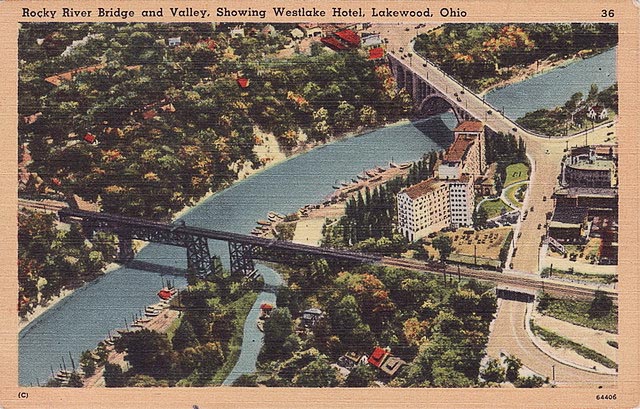While the Urban Edge strives to provide readers with daily news and insights about urban policy, we’re also voracious readers of city news ourselves. As part of a new weekly feature, Senior Editor Ryan Holeywell highlights the week’s most interesting articles from around the web about urban policy and city life.
The Town Where Everyone Still Walks to School
Governing magazine reports on Lakewood, Ohio, the most densely populated place between New York City and Chicago. The community doesn't have school buses -- and it never has -- because just about everyone walks to school. That's a rarity at a time when nationally, just 13 percent of kids walk or bike to school. The town has deliberately chosen to build multi-story buildings within neighborhoods rather than sprawling campuses that have become the norm in some places.
What the New Federal Highway Act Means for U.S. Cities
The new five-year, $305 billion highway and transit bill known as the FAST Act has good news and bad news for cities, City Lab reports. The good: more flexible standards for street design and a slightly larger piece of the federal funding pie. The bad news: uncertainty about the future of the popular TIGER grants program, which helped provide funding for many innovative city projects, and cuts to transit funding grants.
Why It's So Hard to Afford a Rental Even If You Make a Decent Salary
New figures show that the median asking rent for newly-built apartments is $1,372 -- about 50 percent more than the typical rental, the Washington Post's Wonkblog reports. While there's pressure to build rental units that low- and moderate-income families can afford, it's largely luxury-style units geared towards the wealthy that developers are actually constructing. Wonkblog speculates that in many cities, it has become a challenge for developers to build apartments the median renter could afford (with rent of about $875) while still recouping their costs, in part due to complicated political and regulatory hurdles.
Magic Bus Gives a Lift to Poor Houstonians Working Toward Better Lives
A brightly painted van makes loops around Houston's working-class Gulfton neighborhood, providing a lifeline to riders who don't own cars in a city where transit service is often unreliable, the Houston Chronicle reports. "I don't have any other way of getting around," said Yeni Gonzales, 34, one of the 560 riders who use the "Magic Bus" each month. "Without it, I would just have to walk everywhere." The service is run by the nonprofit Neighborhood Centers, and without it, the newspaper reports, many families would struggle to access jobs, classes, and health care.
Supreme Court Appears Ready to Shake Up How Election Districts Are Drawn
Supreme Court Justices this week heard arguments in a case that may force lawmakers to change the way they draw election districts everywhere, from the U.S. House of Representatives to state legislatures to city councils, the, The Los Angeles Times reports. The potential shift might give a political boost to Republicans in rural areas and hurt Democrats in cities. At issue is whether districts should be based on the total population or the population of eligible voters. It's a big debate in areas with large numbers of Latinos who are not citizens and thus can't vote.
How Urban Planners Are Trying to Detoxify Our Cities By Enabling Healthier Lifestyles
Philadelphia is known for cheesesteaks, but in 2010, the city launched an effort to try to get healthier. Now, public health experts across the country are excited about its success, Healthline reports.The strategy involves changing "default" behaviors. Restaurants have been trained to put less salt in their dishes. Walking and cycling options are incorporated into transportation planning. Corner stores have been asked to stock healthier food. In Philadelphia, obesity rates have fallen 6 percent since the "Get Healthy Philly" program debuted.

